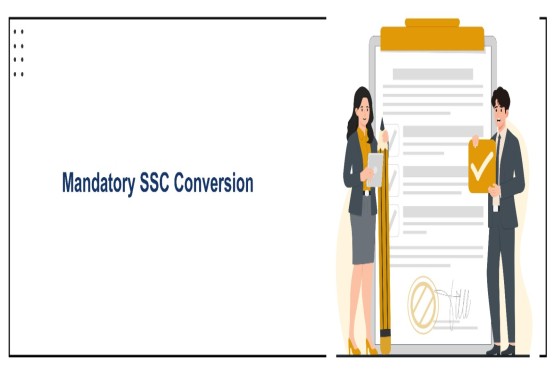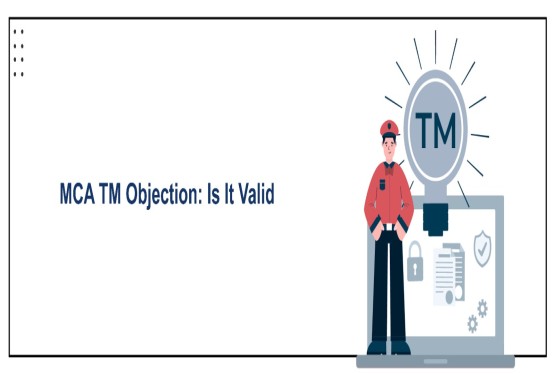Directors in India are issued a unique Director Identification Number (DIN) that allows them to legally serve on company boards. However, holding a DIN comes with annual compliance: directors must file Form DIR-3 KYC with the Ministry of Corporate Affairs (MCA) to update their KYC details. Failure to do so leads to DIN deactivation, preventing the director from signing filings or participating in corporate governance. To restore active status, directors must file the overdue DIR-3 KYC form along with the late fee. This article explains the process, requirements, and importance of timely DIN reactivation for staying compliant.
Director Identification Number (DIN)
The Director Identification Number (DIN) is a unique eight-digit number issued by the Ministry of Corporate Affairs (MCA) to individuals intending to become directors in Indian companies. It serves as the director’s official identity and is mandatory for signing company documents, filings, and board resolutions. Once allotted, the DIN remains valid for a lifetime but requires annual KYC compliance through Form DIR-3 KYC. Non-compliance can lead to deactivation, restricting the individual from performing directorial duties.
What is Form DIR-3 KYC?
Form DIR-3 KYC is an annual compliance form prescribed by the Ministry of Corporate Affairs (MCA) in India that every director holding a Director Identification Number (DIN) must file. The purpose of this form is to update and verify the director’s personal details, such as name, address, mobile number, email ID, and PAN or passport. Filing Form DIR-3 KYC ensures that the DIN remains active and compliant. Failure to submit it by the due date leads to DIN deactivation and attracts a mandatory late fee for reactivation.
Applicability
Form DIR-3 KYC applies to all directors who have been allotted a Director Identification Number (DIN) as of 31st March of a financial year, regardless of whether they are currently active on any company’s board.
This includes:
-
Indian directors
-
Directors who have resigned but still hold a DIN
Even if a director’s details have not changed, filing is mandatory. For directors who have already filed DIR-3 KYC once and have no changes in mobile number or email, they can complete the annual compliance using web-based DIR-3 KYC-WEB.
Purpose of DIR-3 KYC (Know Your Customer)
The purpose of DIR-3 KYC is to ensure that the Ministry of Corporate Affairs (MCA) maintains an up-to-date and verified database of all individuals holding a Director Identification Number (DIN). By mandating annual KYC filing, the MCA verifies the director’s identity, contact details (email and mobile number), and address, reducing the risk of fraudulent directorships and improving corporate governance transparency. This process ensures accountability, strengthens regulatory oversight, and helps maintain the integrity of the official records of directors in India.
Annual Deadline for Filing Form DIR-3 KYC
Directors who hold a Director Identification Number (DIN) as of 31st March of any financial year are required to submit Form DIR-3 KYC every year, with the filing deadline set for 30th September of the following financial year. This annual compliance allows the Ministry of Corporate Affairs (MCA) to keep its director records accurate and up to date.
If the filing is missed, the director’s DIN is marked as deactivated, preventing them from carrying out directorial responsibilities until the KYC is completed. To reactivate the DIN, the director must file the overdue DIR-3 KYC and pay a mandatory late fee of Rs.5,000.
For example, if a DIN was allotted on or before 31st March 2025, the filing must be done by 30th September 2025.
It’s also worth noting that the MCA may grant deadline extensions in special cases, so directors should keep an eye on official announcements to stay compliant.
DIR-3 KYC eForm
The DIR-3 KYC eForm is an annual compliance form mandated by the Ministry of Corporate Affairs (MCA) for all directors holding a Director Identification Number (DIN) as of 31st March of each financial year. Directors must update their personal details, including mobile number and email, to ensure the MCA maintains accurate records. The filing deadline is 30th September of the succeeding financial year. Failure to file leads to DIN deactivation, barring the director from corporate roles until reactivation. Reactivation requires filing the overdue KYC form and paying a late fee of Rs.5,000. Timely filing helps avoid penalties.
DIR-3-KYC-WEB
DIR-3 KYC-WEB is a simplified, web-based version of the DIR-3 KYC filing introduced by the Ministry of Corporate Affairs (MCA) in India. It allows directors who have already filed Form DIR-3 KYC once (and whose mobile number and email ID remain unchanged) to complete their annual KYC compliance by simply confirming their details online.
Unlike the full eForm, DIR-3 KYC-WEB doesn’t require uploading documents or digital signature; directors just log in to the MCA portal, verify using OTP (sent to registered email and mobile), and submit the confirmation. This helps maintain active DIN status without extra paperwork.
Penalty for Non-Filing of DIR-3 KYC
If a director fails to file Form DIR-3 KYC within the prescribed deadline (usually by 30th September of the relevant financial year), the Ministry of Corporate Affairs (MCA) imposes a mandatory penalty of Rs.5,000. This fine is a late filing fee that must be paid in addition to submitting the overdue KYC form. Until the fee is paid and the form is filed, the director’s DIN remains deactivated, preventing them from carrying out any official duties or company filings.
DIN Deactivation
DIN deactivation occurs when the Ministry of Corporate Affairs (MCA) marks a Director Identification Number (DIN) as inactive due to non-compliance, most commonly when the director fails to file Form DIR-3 KYC by the due date (30th September each year). Once deactivated, the director cannot perform any official duties, sign company documents, or submit statutory filings with the MCA.
To restore the DIN to active status, the director must file the pending DIR-3 KYC along with a late fee of Rs.5,000. Until reactivation, the director’s position is effectively frozen under company law.
DIN Reactivation
Every individual holding a Director Identification Number (DIN) that has been deactivated due to non-compliance with the DIR-3 KYC filing requirement must complete the KYC process by filing the e-form DIR-3 KYC or using the designated DIR-3 KYC-WEB service, along with paying the applicable late fee. This filing is essential to reactivate the DIN.
Once the DIR-3 KYC form is submitted, it goes through the Straight Through Processing (STP) system for approval. Upon successful approval, the DIN is automatically reactivated, ensuring that all directors’ KYC details are current and compliant with regulatory standards.
Documents Required
To complete the DIR-3 KYC filing for the DIN reactivation process, the following documents are necessary:
-
Digital Signature Certificate (DSC): The Digital Signature Certificate (DSC) is a mandatory Class-2 certificate linked to the director’s PAN, used to electronically sign and authenticate the DIR-3 KYC form during DIN reactivation.
-
PAN Card: A self-attested copy of the PAN Card is required for Indian directors when filing DIR-3 KYC, serving as a key identity proof to match official records during the DIN reactivation process.
-
Proof of Address: A self-attested proof of address, such as Aadhaar Card, Voter ID, or Driving License, is required to verify the director’s current residential address during the DIR-3 KYC filing process.
-
Photograph: A recent, self-attested passport-sized photograph of the director is required for DIR-3 KYC filing, and it is mandatory for both Indian and foreign nationals during the DIN reactivation process.
-
Contact Details: Directors must provide a unique personal mobile number and email address for OTP-based verification, ensuring their contact details are accurately updated during the DIR-3 KYC filing and DIN reactivation process.
-
Additional Personal Information: Directors must provide additional personal details such as citizenship, nationality, and residential status, which help the Ministry of Corporate Affairs maintain accurate and up-to-date records during the DIR-3 KYC filing process.
Conclusion
Reactivating a Director Identification Number (DIN) through Form DIR-3 KYC is an essential annual compliance obligation for all company directors in India. Missing the filing deadline results in DIN deactivation, restricting the director from performing key corporate functions and incurring a mandatory late fee of Rs.5,000. Timely submission helps directors stay compliant with the Ministry of Corporate Affairs (MCA) and preserves their legal authority within the company. By carefully following the filing process, gathering all required documents, and meeting the deadline, directors can avoid unnecessary setbacks. To ensure a hassle-free and accurate filing, it is recommended to engage professional services that can manage the process efficiently and help maintain uninterrupted directorial responsibilities.
If you have any queries regarding Form DIR-3 KYC, then you can connect with Compliance Calendar LLP experts through email info@ccoffice.in or Call/Whatsapp at +91 9988424211.
FAQs
Q1. How do you reactivate your din?
Ans. To reactivate your DIN, file the overdue DIR-3 KYC form through the MCA portal, provide required documents, and pay the Rs.5,000 late fee; upon approval, your DIN becomes active.
Q2. How much does it cost to reactivate DIN?
Ans. To reactivate a deactivated DIN, you need to file the pending DIR-3 KYC form and pay a compulsory late filing fee of Rs.5,000 to the Ministry of Corporate Affairs.
Q3. How to activate DIN of disqualified director after 5 years?
Ans. To activate the DIN of a disqualified director after five years, ensure the disqualification period has ended, check DIN status on the MCA portal, file DIR-3 KYC with a Rs.5,000 fee, and seek legal help if needed.
Q4. What happens if din is not renewed?
Ans. If a DIN is not renewed by filing DIR-3 KYC, it becomes deactivated, preventing the director from signing filings, holding board positions, or making official submissions until reactivated with a Rs.5,000 late fee.
Q5. What is the penalty for activating DIN?
Ans. The penalty for activating a deactivated DIN due to non-filing of DIR-3 KYC is a mandatory late filing fee of Rs.5,000, payable during the KYC submission for reactivation approval.
Q6. What is the penalty for having 2 DIN?
Ans. Having two DINs violates Section 155 of the Companies Act, 2013, and attracts a fine up to Rs.50,000 plus Rs.500 per day of continued default until one DIN is surrendered.











































































_crop10_thumb.jpg)


































































_crop10_thumb.jpg)
_crop10_thumb.jpg)



_crop10_thumb.jpg)


_crop10_thumb.jpg)





_crop10_thumb.jpg)

_crop10_thumb.jpg)














-suratgujarat-section-158_crop10_thumb.jpg)
-suratgujarat_crop10_thumb.jpg)
-(33)_crop10_thumb.jpg)



-ahmedabad_crop10_thumb.jpg)
-learn_crop10_thumb.jpg)

-learnn_crop10_thumb.jpg)



























































_crop10_thumb.jpg)























_Guidelines_learn_crop10_thumb.jpg)























_learn_crop10_thumb.jpg)
_crop10_thumb.jpeg)









_crop10_thumb.jpg)




_Second_Amendment_Rules,_2025_learn_crop10_thumb.jpg)







_learn_crop10_thumb.jpg)












































_learn_crop10_thumb.jpeg)























_learn_crop10_thumb.jpg)



_rd_roc_learn_crop10_thumb.jpg)
















_learn_crop10_thumb.jpg)














_learn_crop10_thumb.jpg)
_Learn_crop10_thumb.jpg)











































_learn_crop10_thumb.jpg)




_learn_crop10_thumb.jpg)













_crop10_thumb.jpeg)




















